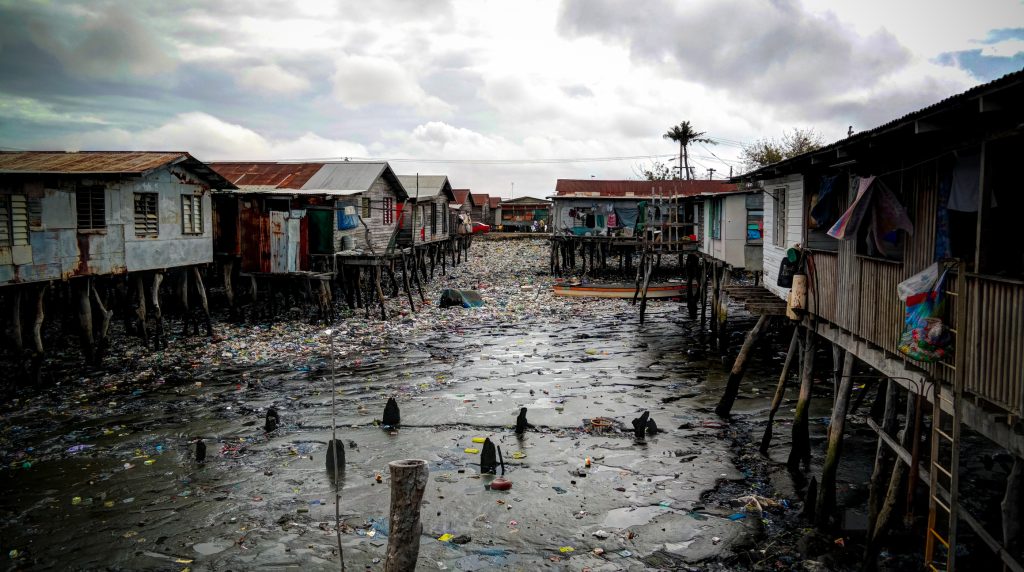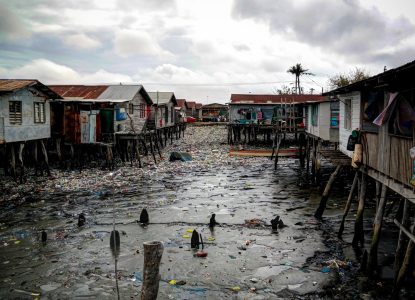By Arnie Saiki
This is an excerpt from a post originally published on the Intemerate Earth website. Read the full version (which includes hyperlinks and references) here.
– – –
Deep seabed mining (DSM) is the latest extractive industry threatening ecological biodiversity in the little-known frontier of the deep seabed. The entanglement of extractive industries in the Pacific is a vestige of the area’s racist and imperialist past—a follow-up to economic interests that degrade, deplete, pollute, oppress and profit from a long history of despair, dispossession and alienation.
In the Pacific, DSM would exploit our common heritage while undermining the genuine security of our customary ocean home. Yet, the talking heads of these mining interests assert that for remote islands and the peoples who are impacted, this new industry will generate huge economic windfalls and provide the missing piece – guaranteeing ‘sustainable development’ in the Pacific.
DSM as “Progress” for Developing Nations
Perhaps the greatest obstacle for small developing countries under the current economic system is that there are few options outside of tourism and fisheries for participating in the global economy. Classified as underdeveloped or low performing because of poor infrastructure, lack of access, or corruption and “cursed” by remoteness and small size, these nations are hindered by reliance upon a development aid scheme that refuses to recognize or value their inherent wealth (since only their extracted resources have a market value). In this context, one can perhaps see why DSM appears as an attractive option to the developing states of the Pacific.

The proponents for DSM (investment regimes, the military subcontractor Lockheed-Martin, and many in the tech industry who “greenwash” precautionary principles by asserting that the minerals in the deep seabed will lower greenhouse gas emissions) are looking to secure licensing with small island states and are offering seemingly lucrative contracts to fragile Pacific Island governments.
The International Seabed Authority (ISA), tasked with protecting humankind’s common heritage, will ultimately decide upon the future of DSM. But DSM is not simply another fruit to be picked—benign bounty that has fallen and is ready to be sold at the market. DSM is an extractive industry predicated upon the inherent racism, degradation, and depletion of the Pacific peoples’ human dignity and ecological wellbeing. The heritage of humankind should be measured by our interconnectedness with life—our mutual interaction with people and planet.
Over the last decade, environmental, scientific, indigenous and civil society organizations have all flagged precautions against DSM. People are organizing to resist DSM through a moratorium or ban on mining. The Pacific Conference of Churches has also put forward a spiritual dimension challenging DSM and the further degradation and depletion of our regional resources, arguing that our wellbeing is intrinsic to our interactions with the ocean, our home and our economy.
The Problem in the Accounting
The question we should be asking is how a territory as vast and rich with culture, traditional practice, and ecological biodiversity as the Pacific Continent has one of the lowest-performing measurements of GDP per capita? Pacific peoples should be the wealthiest in the world, with per-capita wealth like the fictional country of Wakanda, or at least Dubai.
If we were to measure our economies according to conservation systems rather than extraction, the Pacific-wide population of 11 million, responsible for the ecological stewardship of 31 million sq. kilometers, already has tremendous value and power. Yet, there is no inclusion for this data in our current economic accounting system.
The Violence of GDP
Factors of production, consumption, distribution and exchange of goods and services are economic aggregates—and as such have been used extensively to determine the wealth of our economies. The current global standard is GDP (Gross Domestic Product), and has been described as an “economic mirror” measuring the flow of capital between countries. But for the weight that GDP is given, it provides a very poor measurement of the global economy and is arguably the structural deficiency most responsible for climate change, the loss of our ecological biodiversity, and damage to our health and wellbeing.
Due to an unprincipled pursuit of the standards it measures, GDP has ceased to be a useful gauge of our economic interactions and has instead become a weapon—a tool for oppression, degradation, depletion, and wealth consolidation.
Simply put, if all we are doing is measuring industrial inputs and outputs, then we are reflecting an economic measurement that is as accurate as a house of mirrors at an amusement park fun house. As the current economic measurement, GDP is an optical illusion that does little to reflect our interactions with people and the environment.

Revising Accounting Systems
Revisions of the UN System of National Accounts (SNA), as far back as 1993, included considerations to account for ecological degradation and depletion. Yet despite revisions and alternative accounting programs, they were continually rejected, accused of being too experimental. On the other hand, the inclusion of military systems and R&D is deemed legitimate because somehow “national security” and “anticipated losses” could be adjusted into GDP aggregates. The accounting of degradation and depletion could have already begun to reverse greenhouse gases in our atmosphere, reduced poverty indicators globally, and provided greater protections to our ecological biodiversity decades ago.
Unless our Pacific leaders can initiate their own regional accounting revisions, small Pacific Island states will never be able to contribute to the global economy on par with other regions. Governments should be lobbying the UN Statistical Division to demand that they explore alternative accounting methodologies that benefit all regions, not just industrialized ones.
Spirituality and Wellbeing as Stakeholders in the Global Economy.
As part of the process of revising our national accounts, we also need an accounting of our spirituality and wellbeing. We cannot genuinely understand the value of our ecological biodiversity until we have a principled and moral base from which to measure our interactions with people and environment.
This is not to say that organized religions should formally determine an economic value based upon spiritual practice. Rather, I mean that our houses of worship and spiritual practices are like divining rods which guide our assessment of what is pure and sacrosanct in the wellbeing of our people. And it is precisely this fostering of wellbeing that is grossly lacking from our economics.
Identifying Actionable Paths Forward
In this vein, the G20 Interfaith Forum (IF20) is hosting an upcoming webinar, “Ecological Racism and Deep-Sea Mining in the Pacific.” One of the organizers of this event, Rev Dr. Upolo Luma Vaai, forwards that “racism is not just a human issue, it is also an ecological issue,” and it is the very systemic racism inherent in the global economic system that threatens our ecological regional stability.
If the “antidote for ecological racism is to accept and embrace the full dignity and sacredness of ecology,” then the outcome of this meeting should be to identify actionable paths where the Anti-Racism Initiative of the IF20 can influence policymaking—both in the Pacific and the international community. It is through ecological accounting that spirituality and wellbeing can begin to repair the damage of commodity-driven mining ventures.
– – –


